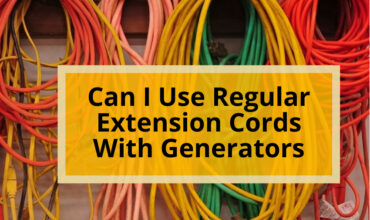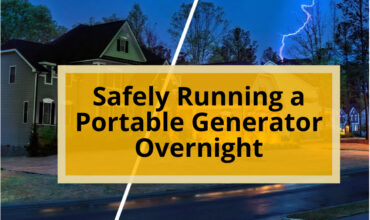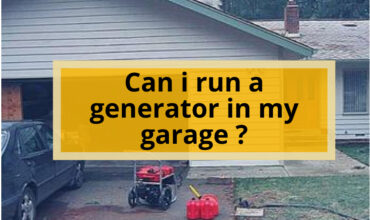Homeowners are always looking for ways to increase the value of their homes, whether it be through renovations, landscaping, or other upgrades. One often-overlooked investment that can add value to a home is a standby generator.
While the value of a generator may vary depending on location and the frequency of power outages, it can provide homeowners with peace of mind and protection from unexpected electricity interruptions.
In this article, we will explore how a standby generator can boost the value of your home. We will discuss the importance of location in determining the return on investment (ROI) of a generator, as well as the various benefits it can offer homeowners.
By the end of this article, you will have a better understanding of the value of a standby generator and whether it is worth the investment for your home.

Location Matters
The return on investment of a standby generator for increasing home value is dependent on the location of the property. Areas with frequent power outages have buyers who are more willing to pay for the feature, as it provides peace of mind during extended outages.
In contrast, areas with reliable power grids may see a lower return on investment for a standby generator. Buyer preferences also play a significant role in the value of a standby generator.
Overhead power lines are more susceptible to outages than underground ones, and buyers in areas with overhead lines may prioritize a standby generator more than buyers in areas with underground lines. Additionally, a standby generator may be perceived as a ‘nice to have’ feature, rather than a necessity, in areas with infrequent outages.
Overall, the location and power grid reliability of a property are important factors to consider when determining the potential value of a standby generator.
ROI and Investment
Investing in a generator can yield a high return on investment, particularly in areas prone to frequent power outages. However, the ROI of a generator investment can vary depending on several factors. Here are some factors that can affect the ROI of a generator investment:
- Location: Areas with frequent power outages are more likely to have a higher ROI for a generator investment.
- Power grid: Areas with overhead power lines are more likely to experience power outages than areas with underground power lines.
- Generator model: Choosing the right generator model can also impact the ROI. A generator that is too small for the home’s needs may not provide enough power during an outage, while a generator that is too large can result in unnecessary costs.
- Installation costs: Installation costs can vary depending on the complexity of the job and the location of the generator.
- Maintenance costs: Regular maintenance is necessary to keep the generator in good working order, and these costs should be factored into the overall ROI calculation.
When considering a generator investment, it is important to weigh these factors carefully to determine whether the investment will yield a high enough ROI to be worthwhile. Choosing the right generator model and ensuring it is properly installed and maintained can help maximize the ROI of the investment.
also read : 6 Powerful Ways To Get Electricity While Camping
Peace of Mind
Regarding the benefits of having a generator, it is noteworthy that a power outage lasting longer than 24 hours occurs once every two years on average in New England.
While some homeowners may view a generator as a luxury item, it provides much-needed peace of mind during times of emergency.
The stress relief that comes with knowing that one’s home will remain fully functional during an outage is immeasurable, making a standby generator a valuable investment for those living in areas prone to power outages.
In addition to providing stress relief, having a generator also helps with emergency preparedness.
In the event of a natural disaster or other emergency, a standby generator ensures that essential appliances and systems such as refrigerators, heating and cooling systems, and medical equipment remain operational.
By investing in a generator, homeowners can rest easy knowing that they are prepared for any situation that may arise, making it a smart and practical investment for those looking to boost their home’s value.
Frequently Asked Questions
What is the average lifespan of a standby generator and how often does it require maintenance?
Standby generators have a lifespan expectancy of 20 to 30 years, depending on usage and maintenance frequency. Regular maintenance, including oil and filter changes, is recommended every 200 hours of use or annually.
Are there any zoning restrictions or permits required for installing a standby generator in a residential area?
Navigating zoning restrictions and permit requirements for standby generators in residential areas can be challenging. Research local regulations and consult with a qualified generator technician to ensure compliance and a smooth installation process.
How does the installation process of a standby generator affect the value of a home?
The installation cost of a standby generator may vary depending on the location and power grid. However, the benefits of having one, such as peace of mind and uninterrupted power during outages, may increase the value of a home, particularly in areas prone to frequent outages.
Are there any tax credits or incentives available for homeowners who invest in a standby generator?
Tax credit eligibility and government incentives for homeowners who invest in a standby generator vary by state and are subject to change. Homeowners should consult with a tax professional or research their state’s energy policies to determine if any programs are available.
Can a standby generator be used to power all appliances and electronics in a home during an outage or are there limitations?
A standby generator can power all appliances and electronics in a home during an outage, but the size of the generator must be determined based on the home’s power needs. Portable generators have limitations and require manual setup. Pros and cons should be considered when choosing between the two options.






